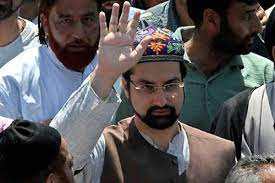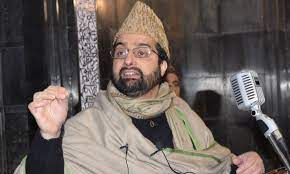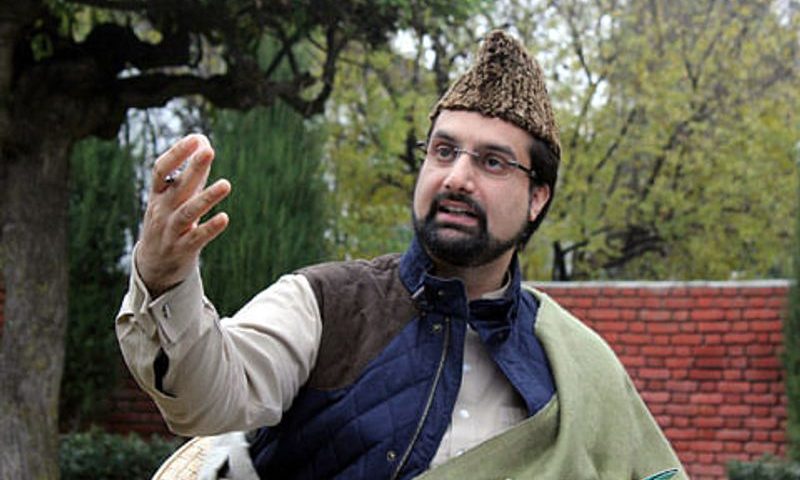Shiv Kumar Sharma accused of convincing locals to become insurgents then turning them in or killing them to receive rewards
A top counterinsurgency officer in Indian-controlled Kashmir has been arrested and is suspected of encouraging men to join rebel groups before turning them in or killing them to receive rewards, police said on Wednesday.
Sub-inspector Shiv Kumar Sharma and his bodyguard were arrested on Tuesday for alleged links to a militant cell involved in a grenade attack in April on a police station in the disputed Himalayan region, said police officer Ashkoor Wani.
Their alleged link to the grenade attack was discovered last month after the arrest of five men accused of carrying it out, Wani said. He said the five named Sharma as the mastermind of the attack.
Another police officer, who spoke on customary condition of anonymity, said the two are now the focus of a wider investigation into charges that they convinced local men to become insurgents in Indian Kashmir and then turned them in or killed them to receive rewards and promotions.
Experts and human rights workers say India’s control over Kashmir through its military and its policy of rewards for officers who arrest or kill suspected rebels has deepened corruption in the police and the army. They routinely accuse the security forces of taking bribes, selling military supplies on the black market, and aiding and benefiting from timber smuggling.
Illegally detaining, torturing and killing rebel suspects for rewards and promotions have been regular accusations against the troops for years.
Sharma is credited with killing at least 68 militants over 15 years in Indian Kashmir, and has been awarded India’s highest gallantry honour in the past.
“He would motivate young men to join militancy through his vast spy network and then get them arrested or even killed to win rewards and promotions,” the second police officer said.
The arrests have rattled Indian authorities who administer and police the tense region against insurgents who are fighting for independence or merger with neighbouring Pakistan.
“It’s shocking news for all of us. He was so effective in fighting against militants,” said another officer, who has worked with Sharma and also spoke on customary condition of anonymity.
Sharma joined counterinsurgency operations in Indian Kashmir as a “special police officer”, part of a semi-official grouping run on special funding from India’s ministry of home affairs.
He soon became a big name in the region’s efforts to control the decades-long separatist insurgency and was rewarded with promotions.
Since 1989, the violent insurgency and the ensuing crackdown by Indian forces have killed an estimated 68,000 people in Kashmir. Although the armed rebellion has been largely suppressed, public resentment against Indian rule remains deep and the resistance is now principally expressed through street protests.
Khurram Parvez, a human rights worker in Kashmir, said an important element in the case is to “probe how many of his kills were innocents he lured and recruited as militants”.
In December, Parvez and other rights workers published a report that dismissed India’s past claims that acts of brutality by Indian troops were aberrations. The report named, for the first time, nearly 500 specific police, military and paramilitary soldiers suspected of crimes, which include rape, murder and kidnapping. The government has not investigated the report’s findings.
“Indian officials have committed these crimes with total impunity to retain control over Kashmir,” Parvez said.






